Still among the best known — and very likely most seen — of all silent movies, the 1925 version of The Phantom of the Opera isn’t and never was a genuinely great film. Like most of Lon Chaney’s movies, it’s s a work that became more known for its undeniably striking still photos than for the film itself. Though it will get me branded a heretic in certain circles, I have long believed that most of Chaney’s films have their greatest appeal in those old, atmospheric scene stills that those of who grew up on “monster magazines” saw years and years before we ever saw any of the movies. The stills suggest so much more than the actual films often deliver. The Phantom of the Opera is no different, but that doesn’t keep it from being one of the essentials of the horror genre, despite the fact that Universal marketed the film based on its size and spectacle. That’s hardly surprising because there really was no horror genre to speak of in 1925, and even those films that flirted with it tended to avoid or refute any hint of the supernatural. For that matter Phantom inserts an unnecessary scene explaining that Erik (Chaney) — The Phantom — is an escapee from a lunatic asylum — something that hardly explains his incredible abilities. The film is fairly standard in that nearly all of it is filmed with a nailed-down camera that rarely moves — as was typical of Hollywood films of the era. It took the arrival of the German stylists to change that — and that was just beginning in 1925.
It was also a troubled production. By the end of the film, director Rupert Julian had managed to alienate most of the cast. Chaney reportedly took over some of the scenes himself and other uncredited directors were called in. The studio didn’t like the original ending — where Erik dies of a broken heart — and insisted on a more exciting climax, which Julian had nothing to do with. (Those scenes were directed by action specialist Edward Sedgwick.) That the film is as good as it is is something of a miracle. Muddying the waters even further is the fact that the film was re-cut in 1929 and clumsily revamped as a part-talkie — mostly by appalling dubbing, especially by the uncredited performer doubling for Chaney. That version, however, does benefit from a period appropriate musical score — some of which will be familiar to horror fans, since it was recycled in low-budget movies of the 1930s. One piece called “The Menacing Foe” (it occurs at about the 60 minute mark with the hanging of Joseph Buquet, who had learned too much) became a recurring theme in the 1934 Bela Lugosi serial The Return of Chandu.
While the original — with the new ending — 1925 version exists, it’s in such poor shape that it’s close to unwatchable. The extant copies all come from badly worn 16mm reduction prints that Universal originally made for the very early home “video” market. It’s a shame, too, because that version may not be exactly a better movie, it’s considerably more coherent and the story progresses much more smoothly. The commercially available versions are all scratched and long shots are reduced to images where the characters are often little more than unrecognizable blobs. It’s an interesting — and frustrating — souvenir, but not something you could show on a screen.
For all its flaws, however, this probably is the “definitive” Phantom. Chaney is sometimes remarkable (at other times, he’s as broad as the rest of the cast) and his self-created make-up is still striking and unsettling — despite the fact that we’ve grown so used to it that it oughtn’t be. Of the other performers, the always-theatrical Arthur Edmund Carewe as the “Secret Police” detective is the most enjoyable. While it’s hard not to cringe at how badly done the big chandelier scene is done, nothing quite dims the production design by Ben Carré, or the film’s undeniable size and spectacle. In that regard, the film is hard to beat, and for that matter, it still manages to be an exciting story. The Thursday Horror Picture Show will screen The Phantom of the Opera Thursday, Aug. 21, at 8 p.m. in Theater Six at The Carolina Asheville and will be hosted by Xpress movie critics Ken Hanke and Justin Souther.



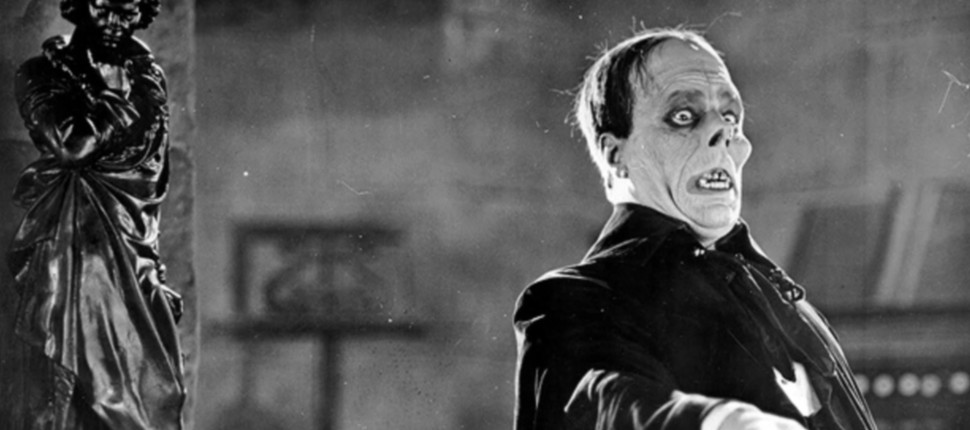
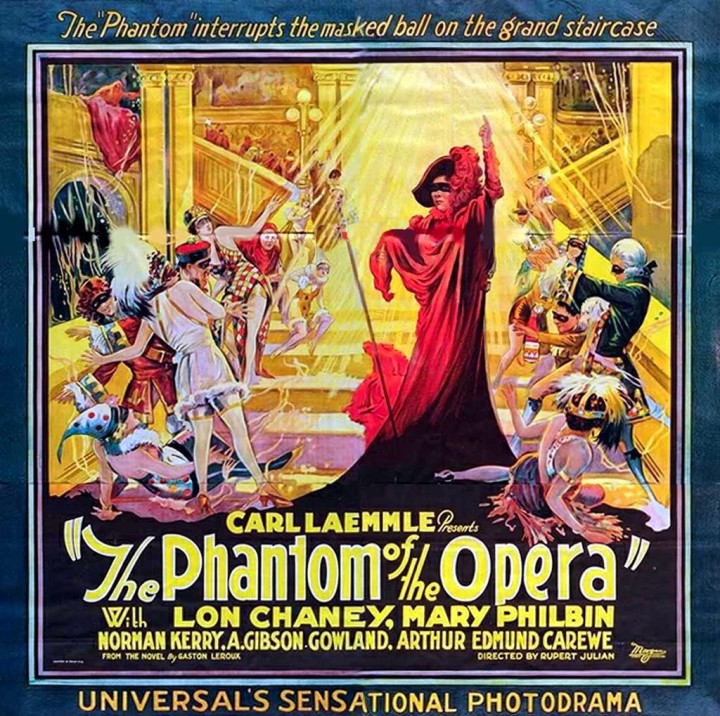
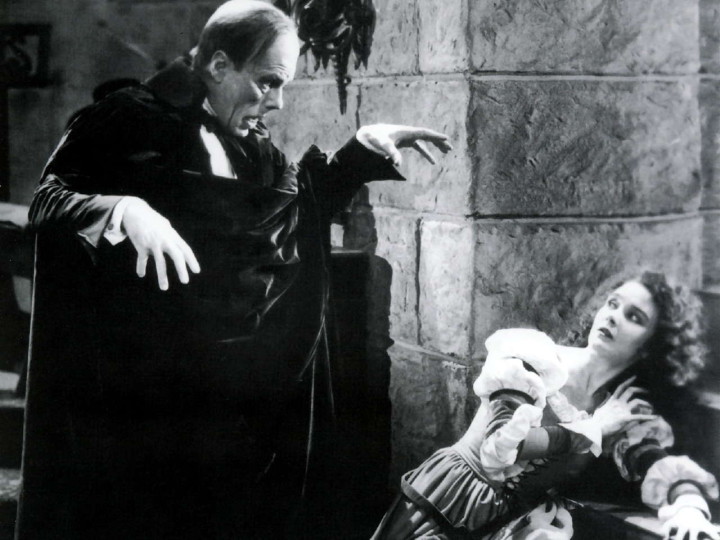
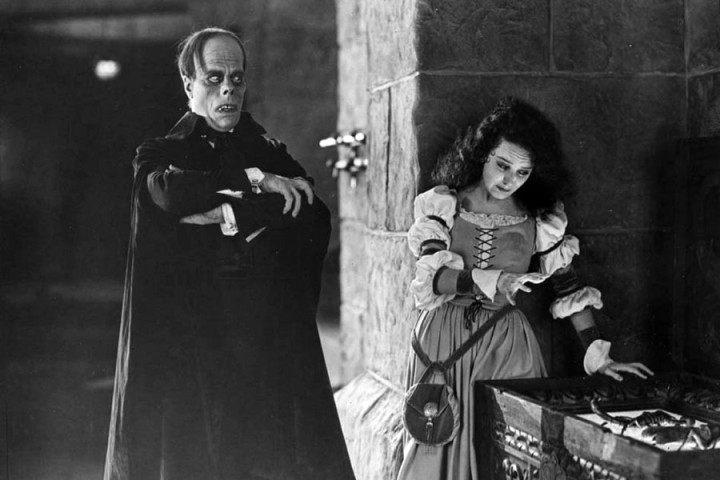
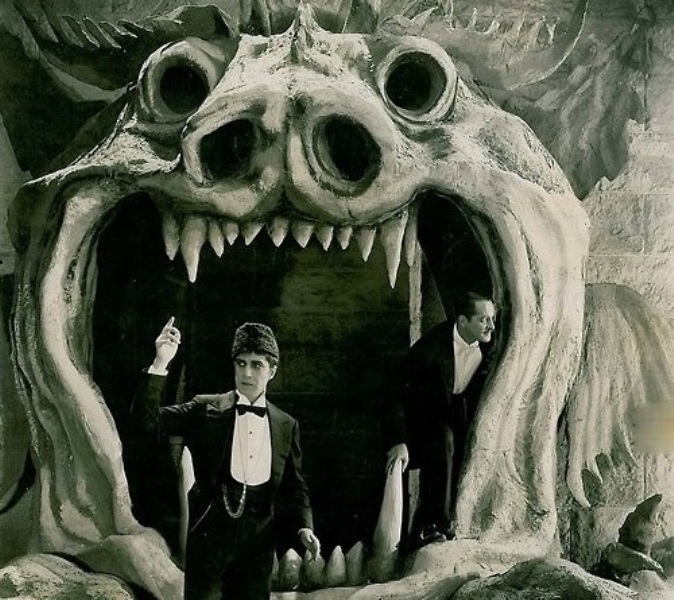
Before you comment
The comments section is here to provide a platform for civil dialogue on the issues we face together as a local community. Xpress is committed to offering this platform for all voices, but when the tone of the discussion gets nasty or strays off topic, we believe many people choose not to participate. Xpress editors are determined to moderate comments to ensure a constructive interchange is maintained. All comments judged not to be in keeping with the spirit of civil discourse will be removed and repeat violators will be banned. See here for our terms of service. Thank you for being part of this effort to promote respectful discussion.